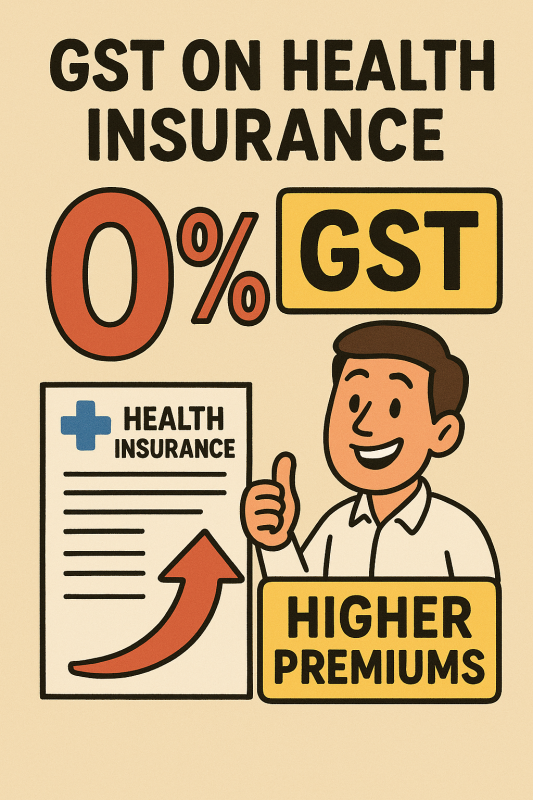Health insurance is a crucial component of financial planning, offering protection against unexpected medical expenses. In a country like India, where healthcare costs are rising and out-of-pocket medical expenditures are high, health insurance should ideally be accessible and affordable for all. However, a significant roadblock to this vision is the imposition of Goods and Services Tax (GST) at a high rate of 18% on health insurance premiums. This taxation policy has drawn criticism from various quarters and is considered a deterrent to widespread health insurance adoption, particularly among the middle class and economically weaker sections.
Understanding the Impact
Currently, health insurance premiums in India attract 18% GST, the same rate applicable to several luxury goods and services. This categorization is seen as inconsistent with the essential nature of healthcare. Unlike luxury items, health insurance is a necessity, particularly in the absence of universal healthcare coverage. An 18% tax significantly increases the cost of premiums, discouraging individuals, especially those from lower income brackets, from purchasing or renewing policies.
For senior citizens, who are more likely to require health coverage due to age-related health issues, the problem is even more acute. Premiums for senior citizen health insurance policies are already higher due to increased risk, and the added GST makes these plans even less affordable. This has resulted in many elderly citizens foregoing insurance altogether, exposing them to financial risk in case of medical emergencies.
A Barrier to Universal Health Coverage
India aims to achieve universal health coverage under schemes like Ayushman Bharat, which focuses on providing health insurance to the economically disadvantaged. However, to truly ensure health security for all, private insurance must complement government schemes. High GST on health insurance discourages this private participation and contradicts the broader objective of inclusive healthcare.
Industry and Public Response
Insurers and industry experts have repeatedly called for the government to reduce or eliminate GST on health insurance. Many have proposed lowering the rate to 5% or exempting it altogether, especially for specific segments such as senior citizens or individuals purchasing policies for their dependents. They argue that health insurance should be treated like education and healthcare services, both of which are either exempted from GST or taxed at a lower rate.
Furthermore, public sentiment is increasingly critical of the high taxation on essential services. During the COVID-19 pandemic, the need for health insurance became more evident than ever, and calls for tax relief intensified. However, despite multiple representations, the GST Council has yet to make significant changes to the current structure.
The Way Forward
To promote health insurance as a basic necessity, the Indian government must reconsider its GST policy on premiums. A reduced tax rate or exemption would not only encourage more people to buy health insurance but also help in achieving the broader goal of universal health coverage. In a country where financial preparedness for medical emergencies can mean the difference between life and death, making health insurance more affordable should be a policy priority.
By aligning tax policy with healthcare objectives, India can take a significant step toward a healthier, more financially secure population.













